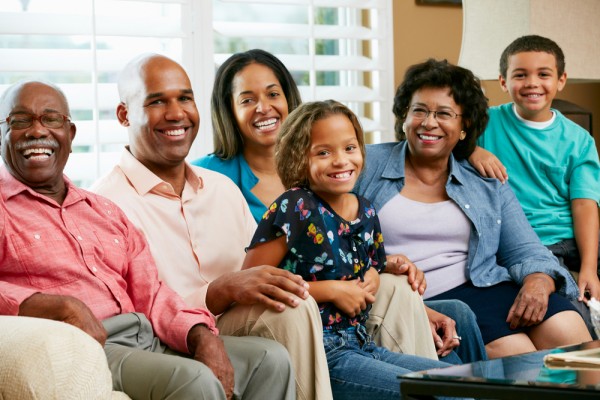AmRen: What I Like About Blacks by Jared Taylor
https://www.amren.com/news/2015/02/what-i-like-about-blacks/
Jared Taylor, Unz Review, February 16, 2015
Like some other writers for this website, I have a reputation for writing rude things about blacks. I have written rude things about whites, Hispanics, Asians, and Muslims, but being rude about blacks is one of our era’s unforgivable sins. Of course, what I write about blacks is true, but as Mark Twain pointed out, nothing astonishes people more than to tell them the truth. Deep down, everyone knows the truth about blacks, but a vital requirement for respectability is to pretend you don’t.
The fact is, there are things to like about blacks–and I like them. They mostly have to do with lack of inhibition, a kind of cheerful spontaneity you don’t often find in whites. I have a half-Asian friend–a connoisseur of stereotypes–who thinks blacks and whites differ in that respect even more than they do in average IQ. As he puts it, whites act like Asians who have had a few drinks and blacks act like whites who have had a few drinks.
You see this in the easy way blacks talk to strangers. Sometimes I wear a hat–a black fedora in the winter or a panama in the summer–and I can count on compliments from blacks: “Love yo’ hat.” “Cool lid, man.” Mostly it’s from men but sometimes from women, too.
Blacks also have a knack for turning a moment with a stranger into a friendly exchange. If you are waiting for a bus in the summer, someone will turn to you and say “Sho is hot,” or “When izzat damn bus gonna come?” Educated blacks learn to be aloof, like whites, but lower-class blacks like to talk to whoever will listen, and there is charm in the way they share bits of their lives with you.
For a few weeks not long ago I walked to a job in the Tenderloin, which is San Francisco’s worst ghetto. Most whites never go there. The bum shelters empty early, so even at 8:30 in the morning the sidewalks were full of layabouts and panhandlers, most of them black. Some were clearly crazy–they looked straight through me and talked to themselves–but they never seemed dangerous. There was always banter among the regulars; some called each other by name, but there was a lot of “Hey, nigga,” too.
I wore a suit every day, and the federal courthouse was down the street, so after a few days, I was greeted with “Heah come de judge.” The panhandlers quickly learned I was a dry hole, but one tall, skinny black man refused to give up. “Any spare change today?” he would say, with a smile. And, of course, everyone liked my hat.
I had one awkward moment. A middle-aged woman with shocking blonde hair walked up and opened her jacket, revealing great, pendulous breasts. She then wrapped her arms tightly around me, as a happy cackle went up and down the sidewalk. I was stuck. I didn’t want to force her arms apart, and she wouldn’t let go. I was saved by another black woman who came up and said, “Stop yo’ playin,’ nigga, or I’ll beat yo’ ass.” I don’t think it would have worked if I had said that.
I realize that not everyone would have enjoyed that commute through the Tenderloin, but I did. Those “niggas” were poor and would always be poor. They were about as down and out as Americans get. But I admired the way they got every possible drop of amusement out of their lives. I was a bit of fun walking through their neighborhood, and they made the most of it–and in a way that made it fun for me, too.
It’s hard to imagine a bunch of whites in quite the same predicament, but I think they would have an angry sense of failure that those blacks did not. They would be surly; these people were cheerful. A long-forbidden stereotype is the happy-go-lucky Negro. Sorry, but that’s what I found in the Tenderloin.
Part of the spontaneity of blacks is the uninhibited way they pay compliments. Once I was walking back to my hotel room after a workout in the gym. My shirt was off and I was glistening. Two black chambermaids coming down the hall eyed me with interest. “Nice!” one of them said softly. I smiled, and the other said, much louder, “Very nice.” No white chambermaid would have said that.
I know women don’t like too much of that sort of thing when it goes the other way, especially when it doesn’t stop with “Baby, you look so fiiiiiiiiiiine.” I’ve heard black men proposition complete strangers in broad daylight on the streets of Washington, and I suppose girls get tired of that. Even so, to an onlooker, there’s something compelling about such guileless spontaneity.
The way blacks speak English is entertaining. A black man once explained to me the difference between “He sick” and “He be sick.” “He sick” is chronic–someone who is bedridden or in a wheelchair–while “He be sick” is a temporary condition like the flu.
I got a dose of creative black rhetoric one day when I fell off my bicycle in Manhattan. I had been going fast, and though I wasn’t injured, I was in a mild state of shock. I sat on the curb to pull myself together, and a black bicycle messenger who had seen me go down stopped to see if I was alright. I told him I was fine, but that I was feeling queer, shaky. “Dass right,” he said. “You go off yo’ wheels; it fucks wi’ yo’ mind. It fucks wi’ yo’mind.” I wouldn’t have put it that way, but he got it exactly right.
Jesse Jackson ran for president in 1984 and 1988 on a campaign of doggerel: “From the outhouse to the white house.” “They got dope in their veins, not hope in their brains.” “From disgrace to amazing grace.” A white candidate with idiotic lines like that would be laughed out of politics; Mr. Jackson carried it off.
Like it or not, slang goes mostly from the ghetto to the mainstream: bling, booty, high five, dead presidents, dissin,’ get down, ho, hottie, player, phat. “Black lives matter” is so limp a white guy must have come up with it.
My observations about blacks aren’t science, but science supports them. According to personality tests, blacks are more gregarious than whites, which is exactly what you would expect. Their IQ profile is more heavily weighted to verbal than to mathematical ability.
And ever since people have done surveys of “self-esteem,” they have been surprised to find that blacks have more of it than whites. This is true for both sexes and at every age. In one study, for example, 60 percent of black high school seniors “agreed” with the statement, “I take a positive attitude toward myself,” while only 31 percent of whites did. (The differences even out some when you include the people who “mostly agreed.” Eighty-eight percent of blacks “agreed or mostly agreed” while 76 percent of whites “agreed or mostly agreed”–but that’s still a significant difference.)
Are blacks just lying about self-esteem? Probably not, judging from statistics on suicide. Whites are 2.5 times as likely as blacks to kill themselves.
Blacks are also more impulsive. Give a black and a white child the choice of one candy bar now and three in 15 minutes, and the black child is more likely to want just one now. (One test found that black children were more likely to delay gratification if a black person rather than a white promised the reward, which was to come three weeks later. They had more trust in a black person, but they were still significantly less likely than whites to wait.)
A follow-up study found that people who were good at waiting as a child not only were still good at it 40 years later but had differences in brain activity from people who can’t wait. They were also thinner, handled stress better, had better friendships, were less likely to be addicts, and had gotten higher SAT scores.
Gregariousness, high self esteem, impulsiveness–I think that pretty much accounts for what made those Tenderloin blacks amusing rather than depressing. Of course, there’s a dark side to uninhibitednesss: the smash-and-grab mentality that puts so many blacks behind bars. But so long as it’s a heartfelt, unexpected compliment rather than an overwhelming compulsion to become the owner of your iPhone, it’s endearing.
At the same time, the self-esteem and suicide-rate findings are a great annoyance to anti-racists. If blacks were knocking themselves off at twice the white rate, it would be rock-solid proof of “racism.” The priests of orthodoxy almost never try to explain why the facts run the other way, so I will.
We know that personality is largely inherited, and each race probably evolved an “average personality,” just as it did an average height and IQ. Groups that evolved in climates where they didn’t have to worry about storing food for the winter could afford to eat one candy bar right away. If they didn’t need to cooperate to bring down big game, maybe they could all afford to think they were big shots.
Whatever the case, for blacks to have higher self-esteem than whites despite lower accomplishments suggest a certain level of delusion–and this is something you often see in blacks. It is striking how often young blacks who attend miserable schools and speak Ebonics tell interviewers they expect to become astronauts or lawyers. You see the same thing when a young black is picked up for a gruesome crime. His mother is adamant that her baby would never do such a thing–despite gang tattoos and a rap sheet as long as your arm.
All this contributes to low suicide rates. If you think highly of yourself and don’t worry about the future you won’t kill yourself. But if you have a lot of ego and impulsiveness you might kill someone else. There is good and bad in all these traits.
One of the great, historic frustrations of liberalism is the failure of blacks to behave like whites, no matter how many role models we set up, laws we pass, racial preferences we hand out, or welfare programs we pay for. Blacks are not going to change, so we have to treat with them as they are. And just as the blacks of the Tenderloin saw me as a source of fun–as a potentially amusing fellow human being–we should make the most of their good qualities.


Comments
Post a Comment